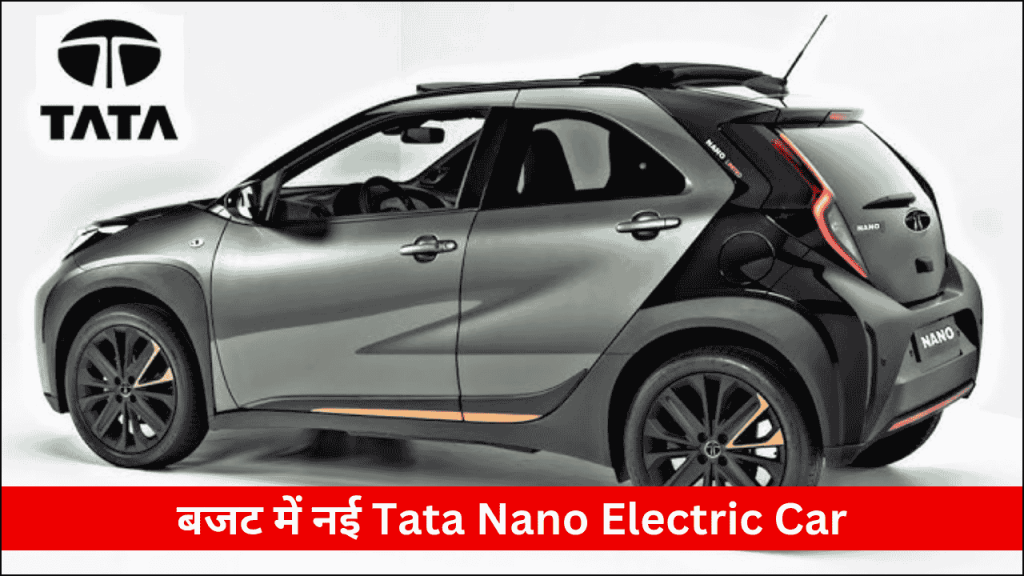
Tata Motors has stunned the automotive sector by unveiling its new Nano Electric Car, an affordable electric vehicle set to transform urban transportation in India. With exceptional features, impressive range, and a price comparable to high-end motorcycles, this reinvented iconic model makes electric mobility accessible to millions of middle-class Indian households.
Transforming a Legend for Electric Mobility
The Nano, once known as the world’s cheapest car, has been completely redesigned for the electric age. Drawing from its experience with successful electric models like the Nexon EV and Tigor EV, Tata has created a purpose-built electric vehicle that maintains the Nano’s compact size and affordability while adding modern technology and enhanced safety features.
The Nano Electric maintains its predecessor’s mission of democratizing car ownership while upgrading it with zero-emission technology and modern styling. The exterior features sleeker lines, LED lighting, and aerodynamic improvements that enhance both efficiency and appearance.
Ultraviolette Electric Bike F77 Mark 2 Debuts 0-60km/h in 2.8 Seconds, 323Km Range
The 2025 Maruti Suzuki Celerio, Urban Driving Redefined with Style, Features, and Efficiency
Jio Electric Cycle, A Revolutionary Affordable Option with 25km Speed Capability
Honda Unveils Cutting-Edge Motorcycle for 2025, Dual ABS at ₹1.57 Lakh
Yamaha RX 100 Revival, Merging Heritage with Modern Engineering
Performance and Range
Despite its budget-friendly positioning, the Nano Electric delivers impressive performance. It features a high-density lithium-ion battery providing an ARAI-certified 200-kilometer range on a single charge. In everyday driving conditions, owners can expect 160-180 kilometers, perfect for city commuting and occasional longer trips.
The electric drivetrain generates 30 kW (approximately 40 horsepower) and 105 Nm of immediate torque, offering lively acceleration that surpasses many entry-level gasoline hatchbacks. With an 85 km/h top speed, the Nano Electric handles city traffic efficiently and manages short highway journeys comfortably.
Charging options include standard home charging that fully recharges the battery in 8-10 hours using a regular 15A outlet. The vehicle also supports DC fast charging, delivering up to 80% charge in just 60 minutes at compatible stations.
Modern Interior and Features
The Nano Electric’s interior represents a major upgrade from the original model. The cabin includes a contemporary dashboard with a 7-inch touchscreen infotainment system supporting Android Auto and Apple CarPlay. The digital instrument panel displays real-time information about range, battery status, and efficiency metrics.
Standard equipment includes power windows, keyless entry, air conditioning, and improved fabric seats for better comfort during daily travel. Higher-end models offer additional features like a reverse parking camera, premium sound system, and leatherette upholstery.
Safety has been significantly improved, with the Nano Electric featuring dual front airbags, ABS with EBD, rear parking sensors, and a reinforced structure designed to meet current safety standards – addressing a primary criticism of the original Nano.
Groundbreaking Price Strategy
The Nano Electric’s most revolutionary aspect is its pricing approach. Starting at just ₹3.99 lakh (ex-showroom, including FAME-II subsidies), the entry-level model costs about the same as premium 250-350cc motorcycles or luxury scooters. This makes it the most affordable four-wheeled electric vehicle globally.
The premium variant, priced at ₹5.50 lakh, includes all deluxe features while remaining substantially cheaper than any other electric car available. With estimated running costs below ₹1 per kilometer, the total ownership cost compares favorably to conventional petrol vehicles and even motorcycles over a typical 5-year period.
Target Market and Potential
The Nano Electric targets first-time car buyers who might otherwise purchase premium two-wheelers, urban families seeking an affordable second vehicle, and environmentally conscious consumers looking for an economical zero-emission commuter option.
The timing is strategic – rising fuel costs and growing environmental awareness create ideal market conditions for affordable electric mobility solutions. Expanding charging infrastructure in major cities and government incentives for electric vehicles further enhance its appeal.
Industry experts predict the Nano Electric could sell between 75,000 to 100,000 units annually, significantly expanding India’s electric car market and potentially creating a new segment of ultra-affordable electric vehicles from other manufacturers.
Specifications Overview
The Tata Nano Electric features a 19 kWh lithium-ion battery with 200 km ARAI-certified range (160-180 km real-world). Priced from ₹3.99 lakh, it offers 30 kW power, 105 Nm torque, and 85 km/h top speed. It charges in 8-10 hours normally or achieves 80% in 60 minutes with fast charging. The four-seater includes a 7-inch touchscreen, multiple safety features, and comes with an 8-year/160,000 km battery warranty.
Support Network and Services
Tata Motors has utilized its established dealer network to provide comprehensive after-sales support. The company has trained specialized technicians across service centers to handle electric vehicle maintenance and repairs.
The vehicle includes an industry-leading 8-year/160,000 km battery warranty and 3-year/100,000 km vehicle warranty, demonstrating confidence in the product’s reliability. Tata’s mobile application allows owners to monitor charging status remotely, plan routes based on charging infrastructure, and schedule service appointments.
The Nano Electric represents Tata Motors’ commitment to making electric mobility accessible to the masses. By combining affordability with practical features and decent performance, it addresses the core needs of budget-conscious Indian consumers while contributing to a cleaner transportation future. As the electric vehicle market continues to evolve, this innovative approach to entry-level electric mobility could establish a new benchmark for affordable, sustainable transportation solutions worldwide.